|
Books Should Be Free Loyal Books Free Public Domain Audiobooks & eBook Downloads |
|
|
Books Should Be Free Loyal Books Free Public Domain Audiobooks & eBook Downloads |
|
Non-fiction |
|---|
|
Book type:
Sort by:
View by:
|
By: Helen Fryer | |
|---|---|
 The Esperanto Teacher
The Esperanto Teacher
The international language Esperanto was first released to the world in 1887, when L. L. Zamenhof published his first book, “Dr. Esperanto’s International Language”. Since that time, many learning books have been developed to help the beginner attain a proficiency in the language. Helen Fryer’s “Esperanto Teacher” is one of the earliest of these attempts in English. Divided into 45 short and easy lessons and supplemented with sections on joining words, exclamations, compound words, arrangement... | |
By: Helen Hunt Jackson (1830-1885) | |
|---|---|
 Bits About Home Matters
Bits About Home Matters
This book is a collection of short observations by Helen Hunt Jackson, several with children and parenting as the subject matter. | |
By: Helen Keller (1888-1968) | |
|---|---|
 The Story of My Life
The Story of My Life
An autobiography of Helen Keller published when the author was still in her early 20's. The narrative reveals how her mind developed and matured until she began her studies at Radcliffe College | |
 The World I Live In
The World I Live In
The World I Live In by Helen Keller is a collection of essays that poignantly tells of her impressions of the world, through her sense of touch, smell, her imagination and dreams. My hand is to me what your hearing and sight together are to you. In large measure we travel the same highways, read the same books, speak the same language, yet our experiences are different. All my comings and goings turn on the hand as on a pivot. It is the hand that binds me to the world of men and women. The hand is my feeler with which I reach through isolation and darkness and seize every pleasure, every activity that my fingers encounter... | |
By: Helen M. Winslow | |
|---|---|
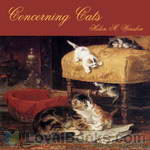 Concerning Cats
Concerning Cats
“I have known, and loved, and studied many cats, but my knowledge of her (Pretty Lady, a cat) alone would convince me that cats love people–in their dignified, reserved way, and when they feel that their love is not wasted; that they reason, and that they seldom act from impulse.” The thoughts of Helen Winslow, a thoughtful and articulate cat friend, about the cats in her life. | |
By: Helen Rowland (1875-1950) | |
|---|---|
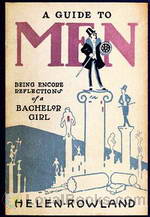 A Guide to Men: Being Encore Reflections of a Bachelor Girl
A Guide to Men: Being Encore Reflections of a Bachelor Girl
A series of occasionally witty one-liners, poems and considerations on the subject of Men, Women and their Conjunction. By turns tender, bland, sexist (in both directions!) and funny. | |
By: Helena Petrovna Blavatsky (1831-1891) | |
|---|---|
 Secret Doctrine.Volume I. Cosmogenesis.Part II. The Evolution Of Symbolism.
Secret Doctrine.Volume I. Cosmogenesis.Part II. The Evolution Of Symbolism.
In this work of comparative religion, ontology and epistemology, Mme. Blavatsky presents science as a belief system of as much value as others in contributing to human knowledge of the seven secret keys to understanding through mathematics and intuition. A comparative study of ancient texts and their commentators over more than three thousand years. | |
By: Hendrik van Loon | |
|---|---|
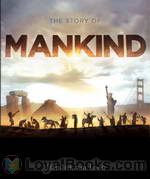 The Story of Mankind
The Story of Mankind
A book that won the Newberry Prize in 1921 for an Outstanding Contribution in Children's Literature, The Story of Mankind, by Hendrik van Loon is indeed a classic that has been enjoyed by generations of children and adults. The book is an engagingly written work, dedicated to the author Hendrik van Loon's two young son's Hansje and Willem. It was created to convey the history of the human race to young people in a way that was interesting, memorable and would spur them onto further research and reading into the subject... | |
By: Henri Poincaré (1854-1912) | |
|---|---|
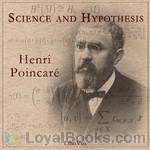 Science and Hypothesis
Science and Hypothesis
Jules Henri Poincaré (1854–1912) was one of France’s greatest mathematicians and theoretical physicists, and a philosopher of science. As a mathematician and physicist, he made many original fundamental contributions to pure and applied mathematics, mathematical physics, and celestial mechanics. He was responsible for formulating the Poincaré conjecture, one of the most famous problems in mathematics. In his research on the three-body problem, Poincaré became the first person to discover a chaotic deterministic system which laid the foundations of modern chaos theory... | |
By: Henrietta Elizabeth Marshall (1867-1941) | |
|---|---|
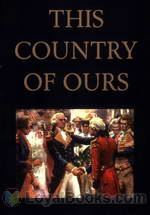 This Country of Ours
This Country of Ours
History made interesting for young readers—This Country of Ours by Henrietta Elizabeth Marshall provides a simple and easy to comprehend way of looking at the history of the United States. Arranged chronologically in seven long chapters, it presents events in a story form, making them memorable and very different from other formats. One of the challenges that writers of history face is about fleshing out the characters and making the bland repetition of dates and dynasties seem relevant to modern day readers... | |
By: Henrietta Latham Dwight | |
|---|---|
 The Golden Age Cook Book
The Golden Age Cook Book
| |
By: Henry A. Beers | |
|---|---|
 A Brief History of English and American Literature
A Brief History of English and American Literature
Henry Augustin Beers (1847-?), native of Buffalo, NY and professor of English at Yale, with the help of John Fletcher Hurst (1834-1903), Methodist bishop and first Chancellor of American University, has written a sweeping thousand 900 year history of English literature, up to the end of the 19th century. Although at times biased and sometimes misguided (as when he dismisses Mark Twain as a humorist noteworthy in his time but not for the ages), his research is sound and his criticism is interesting and quite often very balanced... | |
By: Henry Bibb (1815-1854) | |
|---|---|
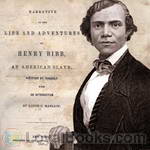 Narrative of the Life and Adventures of Henry Bibb, an American Slave
Narrative of the Life and Adventures of Henry Bibb, an American Slave
Henry Walton Bibb was born a slave. His father was white although his identity was not positively known. Bibb was separated from his mother at a very young age and hired out to other slave owners for most of his childhood. Always yearning for his freedom, he made his first escape from slavery in 1842. He was recaptured and escaped, recaptured and escaped over and over; but he never gave up on his desire to be a man in control of his own destiny. | |
By: Henry C. Barkley (1837-1903) | |
|---|---|
 Studies in the Art of Rat-Catching
Studies in the Art of Rat-Catching
This book is often described as an instruction manual on the subject of rat-catching. It does indeed contain a good deal about rats, ferrets and dogs, but it is much more than that. Barkley fills the book with humour, sharp observation, and his sheer joy of living in the countryside. The framework of the book is indeed a course by fictional rat-catcher Bob Joy, who suggests that rat-catching might be a suitable alternative career for boys at Eton, Harrow and the other major English public schools... | |
By: Henry Cabot Lodge (1850-1924) | |
|---|---|
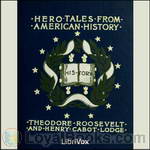 Hero Tales from American History
Hero Tales from American History
Its purpose … is to tell in simple fashion the story of some Americans who showed that they knew how to live and how to die; who proved their truth by their endeavor; and who joined to the stern and manly qualities which are essential to the well-being of a masterful race the virtues of gentleness, of patriotism, and of lofty adherence to an ideal. It is a good thing for all Americans … to remember the men who have given their lives in war and peace to the service of their fellow-countrymen, and to keep in mind the feats of daring and personal prowess done in time past by some of the many champions of the nation in the various crises of her history. | |
By: Henry David Thoreau (1817-1862) | |
|---|---|
 Walden
Walden
Two years, two months and two days! This is what forms the time line of one man's quest for the simple life and a unique social experiment in complete self reliance and independence. Henry David Thoreau published Walden in 1884. Originally drafted as a series of essays describing a most significant episode in his life, it was finally released in book form with each essay taking on the form of a separate chapter. Thoreau's parents were in financial straights, but rich intellectually and culturally... | |
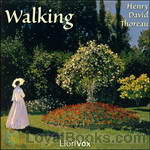 Walking
Walking
This was originally a lecture given by Thoreau in 1851 at the Concord lyceum titled “The Wild” . He revised it before his death and it was included as part of the June 1862 edition of Atlantic Monthly. This essay appears, on the surface, to be simply expounding the qualities of Nature and man’s place therein. Through this medium he not only touches those subjects, but with the implications of such a respect for nature, or lack thereof. | |
 Wild Apples
Wild Apples
| |
By: Henry Dawson | |
|---|---|
 Trips in the Life of a Locomotive Engineer
Trips in the Life of a Locomotive Engineer
Henry Dawson has written several vignettes of railroad men from the days of steam locomotives. His goal is to show the reader that they are not just rough men, but are also brave and heroic men through descriptions of divers dangers encountered on the tracks. | |
By: Henry Drummond | |
|---|---|
 The Greatest Thing in the World and Other Addresses
The Greatest Thing in the World and Other Addresses
The spiritual classic The Greatest Thing In the World is a trenchant and tender analysis of Christian love as set forth in the thirteenth chapter of I Corinthians. The other addresses speak to other aspects of Christian life and thought. | |
By: Henry Edward Krehbiel (1854-1923) | |
|---|---|
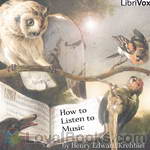 How to Listen to Music
How to Listen to Music
This book is "not written for professional musicians, but for untaught lovers of the art". It gives broad instruction on composers, styles, instruments, venues - and when to believe the critics. | |
By: Henry F. (Henry Flagg) French (1813-1885) | |
|---|---|
 Farm drainage The Principles, Processes, and Effects of Draining Land with Stones, Wood, Plows, and Open Ditches, and Especially with Tiles
Farm drainage The Principles, Processes, and Effects of Draining Land with Stones, Wood, Plows, and Open Ditches, and Especially with Tiles
| |
By: Henry Festing Jones (1851-1928) | |
|---|---|
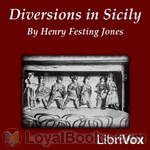 Diversions in Sicily
Diversions in Sicily
Samuel Butler's biographer dedicates his urbane account of the culture and entertainments of rural Sicily to the unborn son of his guide to them. | |
By: Henry Fielding (1707-1754) | |
|---|---|
 Journal of a Voyage to Lisbon
Journal of a Voyage to Lisbon
Sailing voyage from England to Portugal in the mid Eighteenth Century, by one of the premier humorists, satirists, novelists and playwrights of his age. It was to be his last work, as his failing health proved unable to persevere much longer after the voyage. | |
By: Henry Ford | |
|---|---|
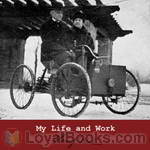 My Life and Work
My Life and Work
Henry Ford profiles the events that shaped his personal philosophy, and the challenges he overcame on the road to founding the Ford Motor Company. Throughout his memoir, he stresses the importance of tangible service and physical production over relative value as judged by profits and money. He measures the worth of a business or government by the service it provides to all, not the profits in dollars it accumulates. He also makes the point that only service can provide for human needs, as opposed to laws or rules which can only prohibit specific actions and do not provide for the necessaries of life... | |
By: Henry G. Nicholls (1825-1867) | |
|---|---|
 Iron Making in the Olden Times as instanced in the Ancient Mines, Forges, and Furnaces of The Forest of Dean
Iron Making in the Olden Times as instanced in the Ancient Mines, Forges, and Furnaces of The Forest of Dean
| |
By: Henry H. Saylor (1880-) | |
|---|---|
 Making a Fireplace
Making a Fireplace
| |
By: Henry James (1843-1916) | |
|---|---|
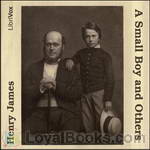 A Small Boy and Others
A Small Boy and Others
A Small Boy and Others is a book of autobiography by Henry James published in 1913. The book covers James’s earliest years and discusses his intellectually active family, his intermittent schooling, and his first trips to Europe. | |
By: Henry L. Mencken (1880-1956) | |
|---|---|
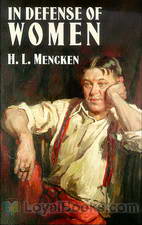 In Defense of Women
In Defense of Women
In Defense of Women is H. L. Mencken’s 1918 book on women and the relationship between the sexes. Some laud the book as progressive while others brand it as reactionary. While Mencken didn’t champion women’s rights, he described women as wiser in many novel and observable ways, while demeaning average men. According to Mencken’s biographer, Fred Hobson: Depending on the position of the reader, he was either a great defender of women’s rights or, as a critic labelled him in 1916, ‘the greatest misogynist since Schopenhauer’,'the country’s high-priest of woman-haters.’ | |
By: Henry L. Williams | |
|---|---|
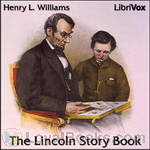 The Lincoln Story Book
The Lincoln Story Book
The Abraham Lincoln Statue at Chicago is accepted as the typical Westerner of the forum, the rostrum, and the tribune, as he stood to be inaugurated under the war-cloud in 1861. But there is another Lincoln as dear to the common people–the Lincoln of happy quotations, the speaker of household words. Instead of the erect, impressive, penetrative platform orator we see a long, gaunt figure, divided between two chairs for comfort, the head bent forward, smiling broadly, the lips curved in laughter, the deep eyes irradiating their caves of wisdom; the story-telling Lincoln, enjoying the enjoyment he gave to others. (from the preface of the book) | |
By: Henry M. Field (1822-1907) | |
|---|---|
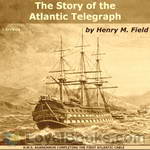 The Story of the Atlantic Telegraph
The Story of the Atlantic Telegraph
Cyrus W. Field had a dream: to link the Old World of Britain and Europe to that of the New World of North America by a telegraph cable stretching across the great Atlantic Ocean. It took him thirteen years, a lot of money, and many men and ships and cable to make it happen. He wanted to bring the world together and make it a smaller place; to forge alliances and achieve peace. This is his story. (Introduction by Alex C. Telander) | |
By: Henry Ossian Flipper (1856-1940) | |
|---|---|
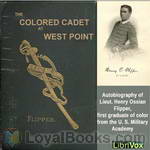 The Colored Cadet at West Point
The Colored Cadet at West Point
Henry Ossian Flipper--born into slavery in Thomasville, Georgia on March 21, 1856--did not learn to read and write until just before the end of the Civil War. Once the war had ended, Flipper attended several schools showing a great aptitude for knowledge. During his freshman year at Atlanta University he applied for admittance to the United States National Military Academy at West Point. He was appointed to the academy in 1873 along with a fellow African American, John W. Williams. Cadet Williams was later dismissed for academic deficiencies. | |
By: Henry Sumner Maine (1822-1888) | |
|---|---|
 Ancient Law Its Connection to the History of Early Society
Ancient Law Its Connection to the History of Early Society
| |
By: Henry Vizetelly | |
|---|---|
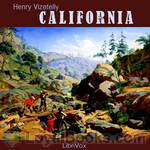 California
California
Vizetelly, writing under the pseudonym J. Tyrwhitt Brooks, recalls an expedition to California he took between 1847-1848 . Originally, he planned to enlist as a surgeon for the US Army during the Mexican war, but conflicts had ended by the time he applied. In a quick change of plans, he joined a group of prospectors on their way to the newly found gold fields of California. While he might not find service in the military, his training as a physician made him a valuable addition to the ragtag team of explorers... | |
 Facts About Champagne and Other Sparkling Wines
Facts About Champagne and Other Sparkling Wines
| |
By: Henry W. Lucy (1845-1924) | |
|---|---|
 Faces and Places
Faces and Places
Faces and Places is a collection of articles on nineteenth century travel, events and personalities by the British journalist Henry Lucy, who wrote for the Daily News, a London newspaper. His open letter To Those About to Become Journalists rings as true today as when it was written.The first article, “Fred” Burnaby, includes a lively account of a balloon trip, while Night and Day on the Cars in Canada and Easter on Les Avants relate Lucy’s experiences of rail travel at that time. Other travel tales (A Night on a Mountain, Mosquitoes and Monaco, and Oysters and Arcachon) provide an insight into the Victorian Englishman’s attitude to Europe... | |
By: Henry William Herbert (1807-1858) | |
|---|---|
 Warwick Woodlands Things as they Were There Twenty Years Ago
Warwick Woodlands Things as they Were There Twenty Years Ago
| |
By: Henry Woodcock (1830-) | |
|---|---|
 The Hero of the Humber or the History of the Late Mr. John Ellerthorpe
The Hero of the Humber or the History of the Late Mr. John Ellerthorpe
| |
By: Herbert Allen Giles (1845-1935) | |
|---|---|
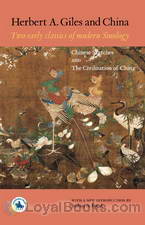 China and the Chinese
China and the Chinese
Herbert Allen Giles (1845-1935) spent several years as a diplomat in China and in 1897 was appointed Cambridge University’s second professor of Chinese. His published works cover Chinese language and literature, history and philosophy. This series of lectures, published as “China and the Chinese”, was given at Columbia University in 1902, to mark the establishment of a Chinese professorship there. The lectures were not intended for the specialist, more to urge a wider and more systematic study of China and its culture, and to encourage new students into the field... | |
By: Herbert Francis Peyser (1886-1953) | |
|---|---|
 Hector Berlioz; A Romantic Tragedy
Hector Berlioz; A Romantic Tragedy
How much more futile is it to attempt on the minuscule scale of the following tiny, if rambling, pamphlet to touch upon even a thousandth of those achievements and unremitting conflicts which entered into the texture of this master’s agitated and inharmonious life! Actually, it aims to do no more than contribute a mite toward a larger interest in the writings and the great mass of insufficiently discovered compositions of a Romanticist whose labors are still surprisingly unrecognized art works of the future. | |
By: Herbert Hoover (1874-1964) | |
|---|---|
 Principles of Mining Valuation, Organization and Administration
Principles of Mining Valuation, Organization and Administration
| |
By: Herbert J. Hall (1870-1923) | |
|---|---|
 The Untroubled Mind
The Untroubled Mind
A very wise physician has said that “every illness has two parts—what it is, and what the patient thinks about it.” What the patient thinks about it is often more important and more troublesome than the real disease. What the patient thinks of life, what life means to him is also of great importance and may be the bar that shuts out all real health and happiness. The following pages are devoted to certain ideals of life which I would like to give to my patients, the long-time patients who have especially fallen to my lot. | |
By: Herbert Newton Casson (1869-1951) | |
|---|---|
 The History of the Telephone
The History of the Telephone
| |
By: Herbert Spencer (1820-1903) | |
|---|---|
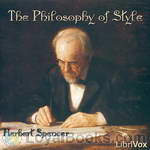 The Philosophy of Style
The Philosophy of Style
“The Philosophy of Style,” explored a growing trend of formalist approaches to writing. Highly focused on the proper placement and ordering of the parts of an English sentence, [Spencer] created a guide for effective composition. Spencer’s aim was to free prose writing from as much “friction and inertia” as possible, so that the reader would not be slowed by strenuous deliberations concerning the proper context and meaning of a sentence. | |
 Essays on Education and Kindred Subjects Everyman's Library
Essays on Education and Kindred Subjects Everyman's Library
| |
By: Herman Friedl | |
|---|---|
 Manufacturing Cost Data on Artificial Ice
Manufacturing Cost Data on Artificial Ice
| |
By: Hilaire Belloc (1870-1953) | |
|---|---|
 The French Revolution
The French Revolution
“It is, for that matter, self-evident that if one community decides in one fashion, another, also sovereign, in the opposite fashion, both cannot be right. Reasoning men have also protested, and justly, against the conception that what a majority in numbers, or even (what is more compelling still) a unanimity of decision in a community may order, may not only be wrong but may be something which that community has no authority to order since, though it possesses a civil and temporal authority, it acts against that ultimate authority which is its own consciousness of right... | |
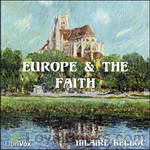 Europe and the Faith
Europe and the Faith
The Catholic brings to history (when I say "history" in these pages I mean the history of Christendom) self-knowledge. As a man in the confessional accuses himself of what he knows to be true and what other people cannot judge, so a Catholic, talking of the united European civilization, when he blames it, blames it for motives and for acts which are his own. He himself could have done those things in person. He is not relatively right in his blame, he is absolutely right. As a man can testify to his own motive so can the Catholic testify to unjust, irrelevant, or ignorant conceptions of the European story; for he knows why and how it proceeded... | |
 First and Last
First and Last
“When a man weighs anchor in a little ship or a large one he does a jolly thing! He cuts himself off and he starts for freedom and for the chance of things. He pulls the jib a-weather, he leans to her slowly pulling round, he sees the wind getting into the mainsail, and he feels that she feels the helm. He has her on a slant of the wind, and he makes out between the harbour piers.” (quotation from Hilaire Belloc) | |
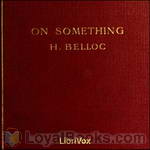 On Something
On Something
“Now that story is a symbol, and tells the truth. We see some one thing in this world, and suddenly it becomes particular and sacramental; a woman and a child, a man at evening, a troop of soldiers; we hear notes of music, we smell the smell that went with a passed time, or we discover after the long night a shaft of light upon the tops of the hills at morning: there is a resurrection, and we are refreshed and renewed.” – Hilaire Belloc | |
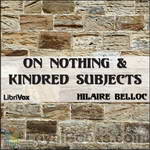 On Nothing & Kindred Subjects
On Nothing & Kindred Subjects
“I knew a man once, Maurice, who was at Oxford for three years, and after that went down with no degree. At College, while his friends were seeking for Truth in funny brown German Philosophies, Sham Religions, stinking bottles and identical equations, he was lying on his back in Eynsham meadows thinking of Nothing, and got the Truth by this parallel road of his much more quickly than did they by theirs; for the asses are still seeking, mildly disputing, and, in a cultivated manner, following the... | |
 The Free Press
The Free Press
I propose to discuss in what follows the evil of the great modern Capitalist Press, its function in vitiating and misinforming opinion and in putting power into ignoble hands; its correction by the formation of small independent organs, and the probably increasing effect of these last. (Introduction by Hilaire Belloc) | |
By: Hiram Bingham (1875-1956) | |
|---|---|
 Inca Lands
Inca Lands
Prof. Hiram Bingham of Yale Makes the Greatest Archaeological Discovery of the Age by Locating and Excavating Ruins of Machu Picchu on a Peak in the Andes of Peru.There is nothing new under the sun, they say. That is only relatively true. Just now, when we thought there was practically no portion of the earth's surface still unknown, when the discovery of a single lake or mountain, or the charting of a remote strip of coast line was enough to give a man fame as an explorer, one member of the daredevil explorers' craft has "struck it rich... | |
By: Holland Thompson (1873-1940) | |
|---|---|
 The Age of Invention : a chronicle of mechanical conquest
The Age of Invention : a chronicle of mechanical conquest
| |
By: Horatio Barber (1875-1964) | |
|---|---|
 The Aeroplane Speaks Fifth Edition
The Aeroplane Speaks Fifth Edition
| |
By: Horatio Nelson | |
|---|---|
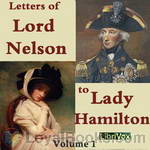 The Letters of Lord Nelson to Lady Hamilton
The Letters of Lord Nelson to Lady Hamilton
Horatio Nelson, 1st Viscount Nelson, 1st Duke of Bronté, KB (29 September 1758 – 21 October 1805) was an English flag officer famous for his service in the Royal Navy, particularly during the Napoleonic Wars. He won several victories, including the Battle of Trafalgar in 1805, during which he was killed. These are the letters that he wrote to Lady Hamilton, with whom he was having a notorious affair until his death in 1805. | |
By: Hubert E. (Hubert Edwin) Collins (1872-1932) | |
|---|---|
 Steam Turbines A Book of Instruction for the Adjustment and Operation of the Principal Types of this Class of Prime Movers
Steam Turbines A Book of Instruction for the Adjustment and Operation of the Principal Types of this Class of Prime Movers
| |
By: Hugh M. (Hugh McCormick) Smith (1865-1941) | |
|---|---|
 The Salmon Fishery of Penobscot Bay and River in 1895-96
The Salmon Fishery of Penobscot Bay and River in 1895-96
| |
By: Hugh Miller (1802-1856) | |
|---|---|
 Leading Articles on Various Subjects
Leading Articles on Various Subjects
| |
By: Hugh Walpole (1884-1941) | |
|---|---|
 Jeremy And Hamlet: A Chronicle Of Certain Incidents In The Lives Of A Boy, A Dog, And A Country Town
Jeremy And Hamlet: A Chronicle Of Certain Incidents In The Lives Of A Boy, A Dog, And A Country Town
Hamlet is Jeremy’s dog. This 1923 book is Hugh Walpole’s second volume in his Jeremy semi-autobiographical trilogy , Jeremy at Crale ), about a ten-year-old English boy. One commentator wrote this of the first book: “With affectionate humor, Mr. Walpole tells the story of Jeremy and his two sisters, Helen and Mary Cole, who grow up in Polchester, a quiet English Cathedral town…. Mr. Walpole has given his narrative a rare double appeal, for it not only recreates for the adult the illusion of his own happiest youth, but it unfolds for the child-reader a genuine and moving experience with real people and pleasant things... | |
By: Hugo Münsterberg (1863-1916) | |
|---|---|
 Psychotherapy
Psychotherapy
Talking about viewing the Ocean "If I take the attitude of appreciation, it would be absurd to say that this wave is composed of chemical elements which I do not see; and if I take the attitude of physical explanation, it would be equally absurd to deny that such elements are all of which the wave is made. From the one standpoint, the ocean is really excited; from the other standpoint, the molecules are moving according to the laws of hydrodynamics. If I want to understand the meaning of this scene every reminiscence of physics will lead me astray; if I want to calculate the movement of my boat, physics alone can help me".(from the Introduction) | |
By: Hugo Ziemann | |
|---|---|
 The Whitehouse Cookbook (1887) Cooking, Toilet and Household Recipes, Menus, Dinner-Giving
The Whitehouse Cookbook (1887) Cooking, Toilet and Household Recipes, Menus, Dinner-Giving
| |
By: Ida Coe and Alice Christie (1876-?) | |
|---|---|
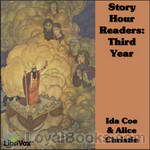 Story Hour Readers: Third Year
Story Hour Readers: Third Year
Short and sweet stories for children from the 19th century. The stories were compiled by two New York City teachers and were thought appropriate for third year children at that time. | |
By: Ida Laura Pfeiffer | |
|---|---|
 A Visit to the Holy Land, Egypt, and Italy
A Visit to the Holy Land, Egypt, and Italy
Ida Pfeiffer travelled alone in an era when women didn’t travel. She went first on a pilgrimage to the Holy Land, then went on to Egypt and Italy. Understanding the difficulties a woman would face travelling alone and on a budget, she made a will before she left. Go she did, however; and upon her return she wrote this book. She used the proceeds to finance her next trip – six months in Iceland. | |
By: Ike Matthews | |
|---|---|
 Full Revelations of a Professional Rat-catcher
Full Revelations of a Professional Rat-catcher
Full Revelations of a Professional Rat-Catcher, after 25 Years' ExperienceBy Ike Matthews. INTRODUCTION. In placing before my readers in the following pages the results of my twenty-five years' experience of Rat-catching, Ferreting, etc., I may say that I have always done my best to accomplish every task that I have undertaken, and I have in consequence received excellent testimonials from many corporations, railway companies, and merchants. I have not only made it my study to discover the different... | |
By: Immanuel Kant (1724-1804) | |
|---|---|
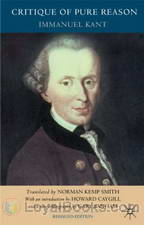 The Critique of Pure Reason
The Critique of Pure Reason
The Critique of Pure Reason, first published in 1781 with a second edition in 1787, has been called the most influential and important philosophical text of the modern age. Kant saw the Critique of Pure Reason as an attempt to bridge the gap between rationalism (there are significant ways in which our concepts and knowledge are gained independently of sense experience) and empiricism (sense experience is the ultimate source of all our concepts and knowledge) and, in particular, to counter the radical empiricism of David Hume (our beliefs are purely the result of accumulated habits, developed in response to accumulated sense experiences)... | |
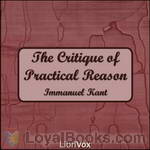 The Critique of Practical Reason
The Critique of Practical Reason
The Critique of Practical Reason (Kritik der praktischen Vernunft) is the second of Immanuel Kant’s three critiques, first published in 1788. It follows on from his Critique of Pure Reason and deals with his moral philosophy. The second Critique exercised a decisive influence over the subsequent development of the field of ethics and moral philosophy, becoming the principle reference point for ethical systems that focus on the rightness or wrongness of actions themselves, as opposed to the rightness or wrongness of the consequences of those actions... | |
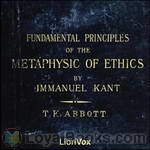 Fundamental Principles of the Metaphysic of Morals
Fundamental Principles of the Metaphysic of Morals
The Fundamental Principles of the Metaphysic of Morals, also known as The Groundwork of the Metaphysics of Morals or Foundations of the Metaphysics of Morals or Grounding of the Metaphysics of Morals, is Immanuel Kant's first contribution to moral philosophy. It argues for an a priori basis for morality. Where the Critique of Pure Reason laid out Kant's metaphysical and epistemological ideas, this relatively short, primarily meta-ethical, work was intended to outline and define the concepts and arguments shaping his future work The Metaphysics of Morals. However, the latter work is much less readable than the Fundamental Principles. | |
By: Inazo Nitobe (1862-1933) | |
|---|---|
 Bushido: The Soul of Japan
Bushido: The Soul of Japan
Bushido: The Soul of Japan written by Inazo Nitobe was one of the first books on samurai ethics that was originally written in English for a Western audience, and has been subsequently translated into many other languages (also Japanese). Nitobe found in Bushido, the Way of the Warrior, the sources of the virtues most admired by his people: rectitude, courage, benevolence, politeness, sincerity, honor, loyalty and self-control, and he uses his deep knowledge of Western culture to draw comparisons with Medieval Chivalry, Philosophy, and Christianity. | |
By: Interborough Rapid Transit Company | |
|---|---|
 The New York Subway Its Construction and Equipment
The New York Subway Its Construction and Equipment
| |
By: International Military Tribunal | |
|---|---|
 Trial of the Major War Criminals Before the International Military Tribunal, Nuremberg, 14 November 1945-1 October 1946: Vol. I
Trial of the Major War Criminals Before the International Military Tribunal, Nuremberg, 14 November 1945-1 October 1946: Vol. I
Recognizing the importance of establishing for history an authentic text of the Trial of major German WWII war criminals, the International Military Tribunal, consisting of members from Great Britain, the USA, Russia, and France, directed the publication of the Record of the Trial. This volume contains basic, official, pre-trial documents together with the Tribunal’s judgment and sentence of the defendants. | |
By: Ira Mayhew (1814-1894) | |
|---|---|
 Popular Education For the use of Parents and Teachers, and for Young Persons of Both Sexes
Popular Education For the use of Parents and Teachers, and for Young Persons of Both Sexes
| |
By: Irvin S. Cobb (1876-1944) | |
|---|---|
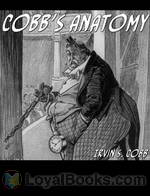 Cobb's Anatomy
Cobb's Anatomy
Irvin Shrewsbury Cobb was born on June 23, 1876. At seventeen years of age, he began writing for the Paducah Daily News, his hometown paper. At nineteen he became the managing editor; up to that point, our nation’s youngest. He worked as a columnist, a humorist and an author. But ‘horror,’ and ’short stories,’ are not why he is remembered. He is remembered because he was, and still is, funny. And although he is now dead–he died March 11, 1944–this work “Cobb’s Anatomy,” among others, has left an indelible mark upon mankind: a smile. | |
By: Irwin S. Cobb (1876-1944) | |
|---|---|
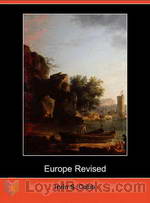 Europe Revised
Europe Revised
Irwin Cobb’s humorous Europe Revised is a travelogue and comedy almost in the style of Mark Twain. The dedication says it best, “To My Small DaughterWho bade me shed a tear at the tomb of Napoleon, which I was very glad to do, because when I got there my feet certainly were hurting me.” | |
By: Isaac Newton (1642-1727) | |
|---|---|
 Opticks
Opticks
The famous physicist Sir Isaac Newton lectured on optics from 1670 - 1672. He worked on the refraction of light into colored beams using prisms and discovered chromatic aberration. He also postulated the corpuscular form of light and an ether to transmit forces between the corpuscles. His "Opticks", first published 1704 contains his postulates about the topic. This is the fourth edition in English, from 1730, which Newton corrected from the third edition before his death. | |
By: Isabella L. Bird (1831-1904) | |
|---|---|
 A Lady's Life in the Rocky Mountains
A Lady's Life in the Rocky Mountains
Isabella Bird began travelling while in her early twenties to help alleviate illness that had plagued her since childhood. She was a single woman in her early forties when she made her treck through the Rocky Mountains. A Lady’s Life in the Rocky Mountains details this fascinating account of her travels through a series of letters written to her sister, Henrietta. These letters are filled with beautiful, vivid descriptions of the scenery, the people she encountered, the way of life, and a mountain man named Jim Nugent, that was as rough as they come, but a complete gentleman with Ms... | |
 The Englishwoman in America
The Englishwoman in America
Isabella Bird travels abroad in Canada and the United States in the 1850s. As an Englishwoman and a lone female, she travels as far as Chicago, Prince Edward Island, and Cincinatti. Her observations on the trials and tribulations of the journeys are astute, if formed by her place and time in history. Adventures with pickpockets, omnibuses, cholera, and rat invested hotels deter her not. (Sibella Denton) | |
 Unbeaten Tracks in Japan
Unbeaten Tracks in Japan
Isabella Lucy Bird was a 19th century English traveller, writer, and natural historian. She was a sickly child, however, while she was travelling she was almost always healthy. Her first trip, in 1854, took her to America, visiting relatives. Her first book, The Englishwoman in America was published anonymously two years later. Unbeaten Tracks in Japan is compiled of the letters she sent to her sister during her 7 months sojourn in Japan in 1878. Her travels there took her from Edo (now called Tokyo) through the interior - where she was often the first foreigner the locals had met - to Niigata, and from there to Aomori... | |
By: Israel Zangwill (1864-1926) | |
|---|---|
 Children of the Ghetto
Children of the Ghetto
In this 1892 novel of London's Jewish East End, Israel Zangwill sets the apparently irrational and decidedly indecorous religious practices of transplanted eastern European Jews against the forces of assimilation. Zangwill's knowledge of Yiddishkeit and skill in melodrama created a series of unforgettable vignettes that had a significant effect on the public perception of this much stigmatized immigrant group. Israel Zangwill (1864-1926) was born in London of Russian and Polish parents. He coined the term cultural "melting pot". | |
By: Izaak Walton (1593-1683) | |
|---|---|
 The Compleat Angler
The Compleat Angler
The Compleat Angler is a celebration of the art and spirit of fishing in prose and verse. Walton did not profess to be an expert with the fly, but in the use of the live worm, the grasshopper and the frog "Piscator" could speak as a master. There were originally only two interlocutors in the opening scene, "Piscator" and "Viator"; but in the second edition, as if in answer to an objection that "Piscator" had it too much in his own way in praise of angling, he introduced the falconer, "Auceps," changed "Viator" into "Venator" and made the new companions each dilate on the joys of his favourite sport. | |
 The Complete Angler 1653
The Complete Angler 1653
| |
By: J Hudson Taylor (1832-1905) | |
|---|---|
 Union and Communion - or Thoughts on the Song of Solomon
Union and Communion - or Thoughts on the Song of Solomon
This little book, whose design is to lead the devout Bible student into the Green Pastures of the Good Shepherd, thence to the Banqueting House of the King, and thence to the service of the Vineyard, is one of the abiding legacies of Mr. Hudson Taylor to the Church. In the power of an evident unction from the Holy One, he has been enabled herein to unfold in simplest language the deep truth of the believer's personal union with the Lord, which under symbol and imagery is the subject of The Song of Songs. (From the Foreword by J Stuart Holden). | |
By: J. Arthur Thomson (1861-1933) | |
|---|---|
 The Outline of Science
The Outline of Science
The Outline of Science, Volume 1 was written specifically with the man-on-the-street in mind as the target audience. Covering scientific subjects ranging from astronomy to biology to elementary physics in clear, concise and easily understood prose, this popular science work is largely as relevant today as when first published in 1922. Special emphasis is given to the principles of biological adaptation and evolution, especially how they relate to the rise of the human species from lower orders. Also included are the basics of the (then) fairly new concept of relativity and its impact on emerging scientific theories... | |
By: J. B. (Joseph Bernard) Wagner (1870-) | |
|---|---|
 Seasoning of Wood
Seasoning of Wood
| |
By: J. C. F. (Joseph Colin Frances) Johnson (1848-) | |
|---|---|
 Getting Gold: a practical treatise for prospectors, miners and students
Getting Gold: a practical treatise for prospectors, miners and students
| |
By: J. C. Meem | |
|---|---|
 Pressure, Resistance, and Stability of Earth American Society of Civil Engineers: Transactions, Paper No. 1174, Volume LXX, December 1910
Pressure, Resistance, and Stability of Earth American Society of Civil Engineers: Transactions, Paper No. 1174, Volume LXX, December 1910
| |
By: J. Henri Fabre (1823-1915) | |
|---|---|
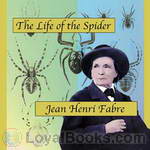 Life of the Spider
Life of the Spider
Jean-Henri Casimir Fabre was a French entomologist and author. He was born in St. Léons in Aveyron, France. Fabre was largely an autodidact, owing to the poverty of his family. Nevertheless, he acquired a primary teaching certificate at the young age of 19 and began teaching at the college of Ajaccio, Corsica, called Carpentras. In 1852, he taught at the lycée in Avignon. | |
By: J. L. Campbell | |
|---|---|
 The Water Supply of the El Paso and Southwestern Railway from Carrizozo to Santa Rosa, N. Mex. American Society of Civil Engineers: Transactions, No. 1170
The Water Supply of the El Paso and Southwestern Railway from Carrizozo to Santa Rosa, N. Mex. American Society of Civil Engineers: Transactions, No. 1170
| |
By: J. M. (James Maurice) Wilson (1836-1931) | |
|---|---|
 Three Addresses to Girls at School
Three Addresses to Girls at School
| |
By: J. M. Barrie (1860-1937) | |
|---|---|
 Tommy and Grizel
Tommy and Grizel
This book continues Sentimental Tommy, also in the catalogue. Tommy grows up and marries Grizel. But life is not only roses and rainbows. This book has all the elements of a good love story, but it is also a book about growing up and finding out your distinct voice in the world. - Summary by Stav Nisser. | |
By: J. Morris Slemons (1876-1948) | |
|---|---|
 The Prospective Mother
The Prospective Mother
A Handbook for Women During Pregnancy. This book, written for women who have no special knowledge of medicine, aims to answer the questions which occur to them in the course of pregnancy. Directions for safeguarding their health have been given in detail, and emphasis has been placed upon such measures as may serve to prevent serious complications. (Introduction by J. Morris Slemons) | |
By: J. O. Choules | |
|---|---|
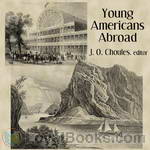 Young Americans Abroad – Vacation in Europe
Young Americans Abroad – Vacation in Europe
It’s 1851 and the Crystal Palace Exhibition is on in England. English American the Reverend Dr. Choules leaves Newport, Rhode Island with three teenaged students – James Robinson, George Vanderbuilt, and Weld French, who are forced to leave the fourth member of their blue-blooded quartet at home – and all four travelers promise to write to “Dear Charley”, Charles Duston, of later fame. The boys meet the Duke of Wellington, travel down the Rhine, and meet many friends along the way. While the letters are filled with some prejudice against the Catholic religion, they are a product of their time – a sometimes ignorant, but often dazzling, period of our history. | |
By: J. Walker McSpadden (1874-1960) | |
|---|---|
 Boys' Book of Famous Soldiers
Boys' Book of Famous Soldiers
These 12 stories give a personal portrait of twelve famous soldiers from the past two centuries. Each story explores the early life of the solder —to trace his career up from boyhood through the formative years. Such data serves to explain the great soldier of later years. Summary compiled from the preface of the book. (Summary by philchenevert) | |
By: Jack London (1876-1916) | |
|---|---|
 John Barleycorn or Alcoholic Memoirs
John Barleycorn or Alcoholic Memoirs
Jack London died at the age of forty. In this autobiographical work, London describes his life as seen through the eyes of John Barleycorn (alcohol). There is much controversy about the cause of his death just as there is about alcoholism and addiction. London’s brutally frank and honest analysis of his own struggles and bouts with alcohol was way before its time and more modern theories of addiction. With remarkable candor and insight, London describes the demons and gods he encountered through both friend and enemy, John Barleycorn. | |
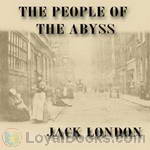 The People of the Abyss
The People of the Abyss
Jack London lived for a time within the grim and grimy world of the East End of London, where half a million people scraped together hardly enough on which to survive. Even if they were able to work, they were paid only enough to allow them a pitiful existence. He grew to know and empathise with these forgotten (or ignored) people as he spoke with them and tasted the workhouse, life on the streets, … and the food, which was cheap, barely nutritious, and foul.He writes about his experiences in... | |
By: Jacob A. Riis (1849-1914) | |
|---|---|
 Out of Mulberry Street
Out of Mulberry Street
These riveting accounts by Jacob A. Riis are from the late 19th century, when lower Manhattan was teeming with struggling, near-starving immigrants crammed into wretched fire-prone tenements. Riis writes compassionately of these people who were nevertheless incredibly resilient and ever aspiring to a better life; of children, lovers, parents, policemen and firemen; of moments of joy, holidays, tragedies, and much more. –Lee Smalley “Since I wrote ‘How the Other Half Lives’ I have been asked many times upon what basis of experience, of fact, I built that account of life in New York tenements... | |
By: Jacob Abbott (1803-1879) | |
|---|---|
 Alexander the Great
Alexander the Great
Tutored by Aristotle, compelled to ascend the throne at the age of 20 when his illustrious father was assassinated, driven by a passion for expanding the borders of his tiny kingdom, Alexander of Macedon was one of the most towering figures of ancient history. He is brought to vivid life in this gripping volume by the American children's writer Jacob Abbott. In his short but eventful life, the young Macedonian king went on to rule over one of the most powerful and largest empires in the ancient world, breaking the hegemony of the powerful Persian dynasty of Darius... | |
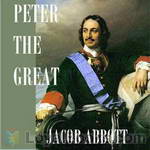 Peter the Great
Peter the Great
“There are very few persons who have not heard of the fame of Peter the Great, the founder, as he is generally regarded by mankind, of Russian civilization. The celebrity, however, of the great Muscovite sovereign among young persons is due in a great measure to the circumstance of his having repaired personally to Holland, in the course of his efforts to introduce the industrial arts among his people, in order to study himself the art and mystery of shipbuilding, and of his having worked with his own hands in a ship-yard there... | |